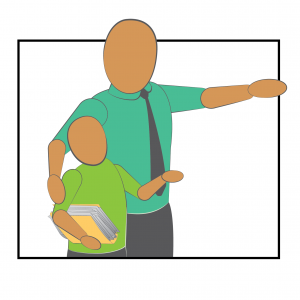The field of user experience has been growing quickly and there are many people who are interested in joining. Given the relative newness of the field, there remains a bit of uncertainty about how to prepare oneself to enter. Graduate school programs are one way while others opt for certification programs. In the end, all of these routes eventually lead to the need for experience doing the work.
How best to gain experience is not always clear. Some of the better graduate school programs offer students opportunities to work on actual client projects. For the rest, learning from a more senior practitioner who is already doing the work is often the best route.
I have been fortunate enough to have had opportunities in my career both to be mentored and to mentor others. A few key principles stand out from the best of those experiences:
- Observation & Time to Question: Typically it is best to have the mentee watch and observe the mentor doing what they do best. The best aspect of this is that the pressure to perform is taken away and the mentee has the opportunity to note what is working well, and to ask the mentor afterwards why particular things were done, why certain steps were necessary, etc. These dialogues are rich with application of principles learned elsewhere.
- Doing the Work While Being Observed: Once the mentee has had the opportunity to observe and to have her questions answered, it is best to provide them with opportunities to try it out for themselves. Thought must be given at this point at how best to create situations where the risk of mistakes is acceptable. For example, if the work is visual design or wireframes these do not have to be shared with the client. Likewise, if the work is user research the mentee can lead some of the later interview or user testing sessions with only the mentor observing.
Once the mentee has had the opportunity to try out the work for themselves, questions should be asked of them such as, “What do you think worked well?” and “How could that go better next time?” are great conversation starters. With user research, having the mentee watch the video or listen to the audio of their session first helps them gain an objective perspective on how things went.
Mentoring is an invaluable way to ensure that every team member has practical professional development opportunities. This is especially true with more junior members of the team that are just starting out in the field. As Confucius once said, “I hear and I forget. I see and I remember. I do and I understand.”
